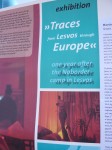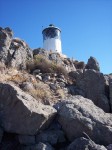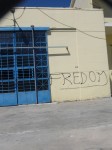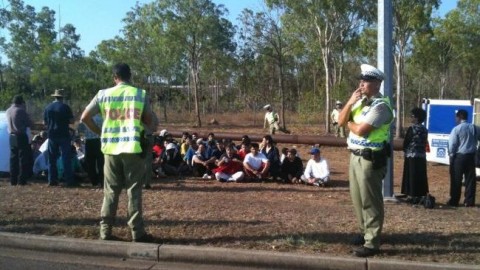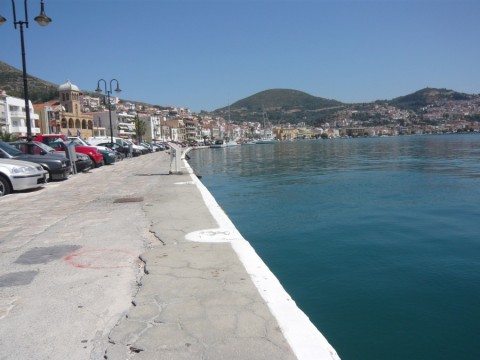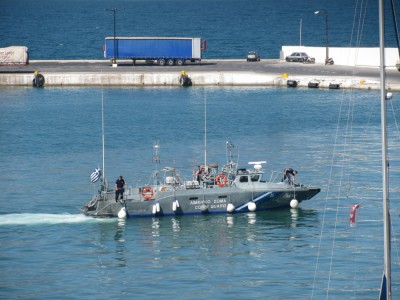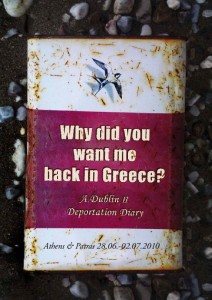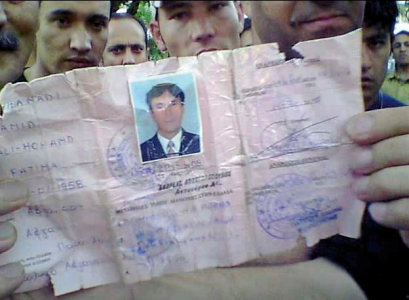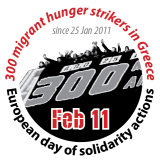Update 2: Victory!
Just found the information on the UNHCR website. We wrote:
We were discussing with a lawyer here in Greece, and she said that she would find it highly unlikely if they received political asylum, since the actual asylum system has been suspended. The Ministry of citizen protection itself has pointed out that it cannot brake the law by giving asylum based on a suspended presidential decree and said that only in September, when the new presidential decree would enter into force, asylum could be granted.
The UNHCR says:
Given the imminent threat to the health and lives of Iranian asylum seekers continued hunger strike in front of the Office of the High Commissioner of UNHCR, the Ministry of Civil Protection has decided yesterday to activate the Appeal Board for the accumulated applications provided by Presidential Decree 81/2009, “on humanitarian grounds and very exceptional, […] despite the government’s steadfast position that the current asylum procedure is impractical, ineffective and outdated.
So yes, our doubts were right, and yes, they did indeed get a proper asylum status. That is very good. Congratulations, we are so happy that all went well in the end! Why did our friends have to take such drastic measures in the first place?
#END OF UPDATE 2
Update 1: Victory?
Today, on the 30th of August, there was the announcement that the six of the seven hunger strikers will obtain political asylum, and that the seventh might likely receive it tomorrow. That would be a huge success. The hunger strikers have since been brought to the hospital, and we are very lucky that the hunger strike is concluded.
You notice the question mark in the headline? We were discussing with a lawyer here in Greece, and she said that she would find it highly unlikely if they received political asylum, since the actual asylum system has been suspended. The Ministry of citizen protection itself has pointed out that it cannot brake the law by giving asylum based on a suspended presidential decree and said that only in September, when the new presidential decree would enter into force, asylum could be granted.
So we were wondering if the hunger strikers were granted humanitarian protection rather than asylum? That would leave them in a much more difficult status, since it would not allow them to leave Greece as some hunger strikers have wished, and the access to social support in Greece would also be much more precarious. We really do hope that the hunger strikes did obtain a proper refugee recognition, and we will continue to look for more precise information. If you know something, please post it in the comments.
#END OF UPDATE 1
Since 13 days seven Iranians are on hunger strike in front of the UNHCR office in Athens. Two of them are in their 32nd day, and you can find previous reports here, here and here + video + video.
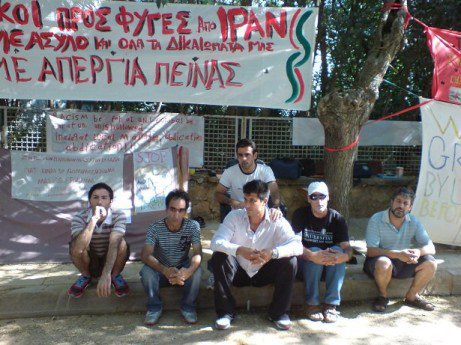
We went to see the hunger strikers, and this is our account:
One hunger striker, Seid Rouhollah (28) was deported from Germany back to Greece one and a half years ago under the Dublin II system. He came to Greece via Mytiline, Lesvos, in one small boat with 26 persons. He was the only survivor when the Greek coast guard punched a hole in their dinghy. Seid is a good swimmer, so he managed to survive, but since than he is afraid of the sea and in his nightmares he sees black bodies drowning in the sea and he can’t do anything – just save his own life.
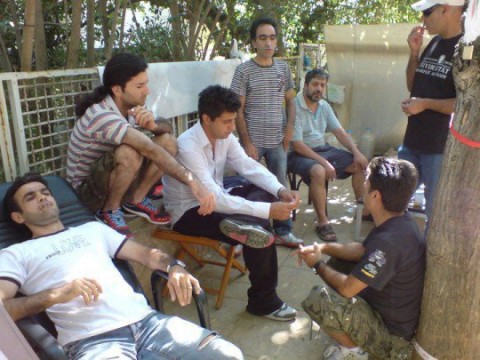
Seid managed to leave Greece after three months. He arrives in Germany where he gets caught in the airport. He spends another three months in detention camp and is finally deported to “Grieschenland” (the word for Greece in a particular German accent). And “Tschüüüss” the german word for bye-bye he still remembers as the police said to him at the deportation. They also told him that it would be nice in Greece, because of the fine weather. He says: Maybe for vacation it is nice.
They say: Don’t worry, now they will care for you!
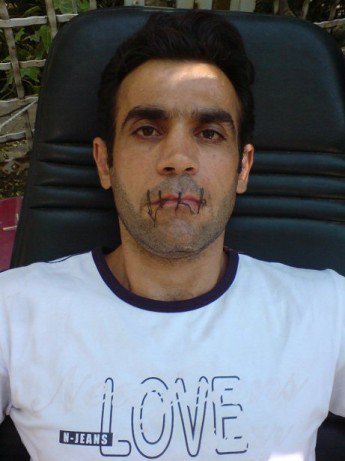
He arrives at Athens airport. They keep him imprisoned for 20 days. It is totally overcrowded, 20-30 persons in one cell. Only once a day there is food: ‘Malakas’ they say and they feed us like animals.
There is no shower and when he leaves he has scabies.
They issue him a Pink Card. Go, go!
they say and he has no shelter and no money. He contacts the Greek Refugee Council, but they say he shoud come again after one week. Since one and a half year now. There are not enough places in the shelters and since Seid is an adult man, he is not considered especially vulnerable. He has slept in a park since then. He says he had been waiting for the chance the hunger strike now gives to him, to finally make his voice heard.
Continue reading ‘On two of the hunger strikers in Athens [2 Updates]’



